What if the perfect partner wasn’t human? As technology continues to evolve, artificial intelligence is stepping into the world of dating and relationships in ways that sound more like science fiction than reality. From algorithm-driven matchmaking to AI companions that can hold conversations, solve problems, and even offer emotional support, the landscape of love is undergoing a seismic shift.
Take Sherry Turkle, a renowned MIT professor and author of Alone Together, who warns that our increasing reliance on technology could lead to a loss of genuine human connection. On the other hand, researchers like Helen Fisher, an expert in human intimacy, argue that AI could help people find deeper emotional compatibility. Meanwhile, futurist Ray Kurzweil predicts that by 2029, AI will pass the Turing Test, blurring the lines between human and machine interaction in relationships.
Today, apps like Tinder and Bumble dominate the dating scene, but what lies ahead is far more transformative. Imagine an AI that doesn’t just recommend potential matches but also coaches you through heartbreak, mediates arguments, and even becomes a lifelike virtual companion. The possibilities are both thrilling and unsettling.
This article tracks the evolution of dating technology, from the early days of algorithmic matchmaking to the rise of AI companions. We’ll explore how these innovations could enhance emotional fulfillment, reshape dating culture, and challenge our understanding of what it means to truly connect. But as with any technological leap, there are risks—emotional dependency, ethical dilemmas, and the potential loss of spontaneity in human relationships. Is this the future we want? And more importantly, are we ready for it?
1. The Evolution of Dating Technology: From Matchmaking to AI Companions
1.1 The Early Days of Algorithmic Matchmaking
The journey of dating technology began with platforms like eHarmony and OkCupid, which introduced the concept of using personality tests and algorithms to match users. These platforms relied on early AI systems to analyze user data and predict compatibility based on factors like values, interests, and lifestyles.
For example, eHarmony’s patented Compatibility Matching System claimed to use over 29 dimensions of compatibility to find the perfect match. While these systems were groundbreaking at the time, they were limited by the technology of their era. The focus was on long-term relationships, but the process often felt impersonal and formulaic.
1.2 The Tinder Revolution
The introduction of Tinder in 2012 marked a dramatic shift in how people approached dating. Gone were the lengthy personality tests—users simply swiped right or left based on a photo and a short bio. This gamified approach made dating feel more casual and accessible, but beneath the surface, advanced AI-powered recommendation engines were at work.
Tinder’s algorithm analyzed user behavior—such as swiping patterns, messaging frequency, and profile interactions—to refine match suggestions. Over time, the app learned what users liked and adjusted its recommendations accordingly. This marked a turning point where AI began to play a more active role in shaping dating culture.
1.3 The Emergence of AI Companions
Today, AI is moving beyond matchmaking to become a source of companionship itself. Apps like Replika allow users to create virtual partners who can chat, offer emotional support, and even develop their own “personalities” over time. These AI companions are designed to simulate human conversation with eerie accuracy, providing a sense of connection for those who feel lonely or isolated.
But this is just the beginning. Companies are exploring the development of fully immersive AI companions that can interact with users through virtual reality or augmented reality. Imagine a world where your AI partner can walk alongside you in a virtual park, share a meal with you, or even hold your hand—what would that mean for the future of human relationships?
2. The Benefits of AI in Dating and Relationships
2.1 Personalized Matchmaking
AI’s ability to analyze vast amounts of data is transforming how we find love. Platforms like eHarmony and OkCupid have long used algorithms to match users based on personality traits, but AI takes this to a whole new level. By processing data from social media, dating profiles, and even user behavior, AI can identify patterns that predict compatibility. For example, a 2020 study by Stanford University found that machine learning algorithms could predict long-term relationship success with 75% accuracy. This means fewer awkward first dates and more meaningful connections.
2.2 Emotional Support and Companionship
Loneliness is a growing epidemic, particularly among younger generations. AI offers a unique solution through virtual companions like Replika, an AI chatbot designed to provide emotional support. These AI companions can mimic human conversation, offer advice, and even help users process their emotions. For instance, a 2021 survey by HHS found that 40% of Replika users reported reduced feelings of loneliness. While AI can’t replace human connection, it can act as a bridge for those struggling to find meaningful relationships.
2.3 Relationship Coaching and Conflict Resolution
AI isn’t just about finding love—it’s about keeping it. Tools like Lastly use AI to provide relationship coaching, helping couples navigate conflicts and improve communication. By analyzing text messages, emails, and even voice conversations, AI can identify patterns that lead to misunderstandings and offer real-time advice. Think of it as having a neutral mediator who’s always on your side. A 2019 study by Harvard University found that AI-driven coaching tools improved relationship satisfaction by 30%. Whether it’s resolving a petty argument or addressing deeper issues, AI could be the key to a happier partnership.
3. The Challenges of AI in Relationships
3.1 Emotional Dependency
One of the biggest risks of AI companionship is emotional dependency. While AI can offer support, it’s not a substitute for human interaction. Over-reliance on AI for emotional fulfillment could lead to diminished social skills and a reluctance to form real-world relationships. For example, a 2022 report by the American Psychological Association warned that excessive use of AI companions could exacerbate feelings of isolation in the long run. It’s a double-edged sword: while AI can help in the short term, it might hinder personal growth in the long term.
3.2 Ethical and Privacy Concerns
The use of AI in relationships raises serious ethical questions. For starters, AI systems collect vast amounts of personal data, from intimate conversations to behavioral patterns. If this data is mishandled or hacked, it could lead to devastating consequences. Additionally, there’s the issue of AI simulating human emotions. Can an algorithm truly understand empathy, or is it just mimicking it? A 2021 report by OpenAI highlighted the risks of AI systems manipulating users for profit or other agendas. Without strict ethical guidelines, the potential for abuse is enormous.
3.3 The Loss of Authenticity
Human relationships are messy, unpredictable, and deeply authentic. AI, on the other hand, operates on logic and algorithms. While this can make relationships more efficient, it might also strip away the spontaneity that makes them special. Imagine a partner who never forgets a birthday, always knows what to say, and never gets angry. Sounds perfect, right? But what happens when perfection becomes the standard? A 2020 study by MIT found that users who interacted with AI partners often developed unrealistic expectations for human relationships. In the quest for perfection, we risk losing the beauty of imperfection.
4. The Impact on Dating Culture
4.1 Changing Social Norms
Think about how dating has evolved over the years. From courtship letters to swiping right, technology has always shaped how we find love. Now, AI is set to redefine social norms even further. Could AI partners become the new normal? Imagine a world where it’s not just humans dating humans but also humans dating AI. Platforms like Replika are already offering virtual companionship, and this trend is only growing. The question is, how will society adapt? Will we see marriages between humans and AI? Will family structures change? These are the big questions that AI is forcing us to confront.
4.2 The Role of AI in Modern Courtship
AI isn’t just changing who we date; it’s also changing how we date. Apps like Tinder and Bumble already use algorithms to match people, but AI could take this to the next level. Imagine an AI that not only matches you but also coaches you on how to approach your date. It could analyze your conversation in real-time and suggest ways to keep things flowing. AI could reduce biases by encouraging people to step outside their usual preferences. It might even help people connect across cultural or linguistic barriers. The possibilities are endless.
4.3 The Future of Marriage and Family
What happens when AI becomes a part of our families? Imagine an AI that helps raise children or supports a marriage as a neutral mediator. While this might sound far-fetched, it’s not as crazy as it seems. In Japan, for example, the government is already exploring ways to use AI to address the declining birth rate. Could AI become a part of our legal systems, recognized as partners or even parents? The societal and legal implications are huge. Will AI-human partnerships be recognized by law? How will society view these relationships? These are questions we’ll need to answer sooner rather than later.
5. Emotional Fulfillment in the Age of AI
5.1 Can AI Provide Genuine Love?
This is the big question: can AI really love us back? While AI can simulate emotions, it’s not clear if it can feel them. Think of it like a really advanced role-playing game. The AI can act like it loves you, but it’s following a script. That said, for some people, that might be enough. A study by Stanford University found that people can form deep emotional bonds with AI, even if they know it’s not real. So, while AI might not provide genuine love, it can still offer emotional fulfillment—at least to a certain extent.
5.2 The Role of Human Connection
Despite the rise of AI, human connection is still irreplaceable. There’s something about the imperfections, the spontaneity, and the unpredictability of human relationships that AI just can’t replicate. Think about it: would you rather have a perfect AI partner or a flawed human one? The flaws, the quirks, the little annoyances—they’re what make real relationships meaningful. AI can complement human relationships, but it can’t replace them. The emotional depth, the shared experiences, and the mutual growth that come from human relationships are things that AI simply can’t offer.
5.3 The Psychological Impact of AI Companionship
What does it do to our mental health when we start relying on AI for companionship? Studies have shown mixed results. On one hand, AI can reduce loneliness and provide support for people who struggle with social interactions. On the other hand, relying too much on AI could lead to dependency and further social isolation. A report by the World Health Organization highlighted the risks of over-reliance on technology for emotional support. So, while AI can be helpful, it’s important to use it in moderation and keep real human connections alive.
6. AI Solutions: How Would AI Tackle This Issue?
AI is not just a tool for matchmaking; it’s a potential game-changer for relationships in the 21st century. But how exactly can it address the challenges of modern dating and emotional fulfillment? Here’s a deep dive into the innovative solutions AI could bring to the table.
6.1 Enhanced Personalization
Imagine an AI that knows you better than you know yourself. By leveraging advanced machine learning algorithms, AI could analyze your preferences, behaviors, and even subconscious patterns to identify the perfect match. Platforms like eHarmony already use personality tests, but the next generation of AI could integrate data from your social media, voice tone, and even body language during video chats to refine its recommendations. The result? A match that feels almost eerily perfect.
6.2 Ethical AI Frameworks
With great power comes great responsibility. AI systems must be built with ethical guidelines to ensure they respect user privacy and emotional boundaries. Collaborating with organizations like the Partnership on AI could help establish standards for transparency, consent, and data security. After all, no one wants their deepest emotions exploited by a rogue algorithm.
6.3 Hybrid Human-AI Relationships
Instead of replacing human relationships, AI could complement them. Think of AI as a relationship coach or mediator. For example, Replika already offers emotional support, but future AI could help couples navigate conflicts or improve communication. Picture an AI that suggests the perfect apology based on your partner’s emotional state—now that’s a game-changer.
6.4 AI as a Relationship Coach
AI could provide real-time advice to improve communication and resolve conflicts. By analyzing conversations, it could flag toxic patterns or suggest healthier alternatives. Imagine an app backed by psychologists from institutions like Harvard or Stanford, offering evidence-based strategies to strengthen your relationship. It’s like having a therapist in your pocket.
6.5 Immersive Virtual Companions
The ultimate frontier? Lifelike AI partners capable of forming meaningful emotional bonds. With advancements in VR and AR technologies by companies like Meta and Apple, AI companions could become immersive experiences. Imagine a virtual partner who remembers your favorite coffee order, cracks jokes, and even holds your hand via haptic feedback. It’s not just science fiction—it’s the future of companionship.
The Brave New World of Love and AI
As we stand on the brink of a new era in dating and relationships, it’s clear that AI will play a pivotal role. From personalized matchmaking to immersive virtual companions, the possibilities are both exciting and daunting. But with great innovation comes great responsibility. We must ensure that AI enhances, rather than erodes, the authenticity of human connection.
The journey ahead is not without challenges. Ethical dilemmas, emotional dependency, and the risk of losing the spontaneity of human relationships are real concerns. Yet, by developing robust frameworks and fostering collaboration between technologists, psychologists, and policymakers, we can navigate these challenges and create a future where AI is a force for good in our love lives.
So, as we embrace this brave new world, let’s remember that technology is a tool—not a replacement for the profound, messy, and beautiful experience of human connection. Whether it’s through a perfectly matched partner or an AI companion that understands us better than we understand ourselves, the ultimate goal is to enrich our lives and bring us closer to the love and companionship we all seek.
Frequently Asked Questions (FAQ)
Q1. Can AI really replace human relationships?
While AI can simulate emotional connections, it lacks the depth and authenticity of human relationships. Its role is to complement, not replace, human interaction. Think of it like a high-tech co-pilot rather than the captain of your love life. For a deeper dive into the psychology of human connections, check out Psychology Today.
Q2. Are AI companions ethical?
Ethical concerns around AI companions include privacy, emotional dependency, and the potential for misuse. Developing ethical frameworks is essential to ensure these technologies are used responsibly. Organizations like the World Economic Forum are already working on guidelines for ethical AI.
Q3. How can AI improve dating apps?
AI can enhance dating apps by refining matchmaking algorithms, providing personalized recommendations, and offering relationship coaching. Platforms like Tinder and OkCupid are already leveraging AI to improve user experience.
Q4. What are the risks of relying on AI for emotional support?
Over-reliance on AI for emotional support can lead to dependency, reduced human interaction, and unrealistic relationship expectations. It’s important to use AI as a tool rather than a crutch. For more on this, read APA’s insights.
Q5. What’s next for AI in dating?
The future of AI in dating includes immersive virtual companions, hybrid human-AI relationships, and advanced relationship coaching tools. Companies like OpenAI and DeepMind are at the forefront of these advancements.
Q6. Can AI predict long-term relationship success?
AI has the potential to predict long-term relationship success by analyzing vast amounts of data, from communication patterns to shared interests. However, the unpredictability of human emotions means AI can only provide probabilities, not guarantees. Learn more about AI predictions from Harvard’s research.
Q7. How does AI handle privacy in dating apps?
AI in dating apps collects sensitive personal data, making privacy a major concern. Reputable apps use encryption and anonymization techniques to protect user information. For tips on protecting your privacy online, visit FTC’s privacy guidelines.
Q8. Could AI reduce bias in dating?
AI has the potential to reduce bias in dating by focusing on compatibility factors rather than superficial traits. However, it’s only as unbiased as the data it’s trained on. For more on AI and bias, check out MIT’s research.
Q9. Are AI relationships legally recognized?
Currently, AI relationships are not legally recognized. The idea of forming a legal bond with an AI entity raises complex ethical and societal questions. For more on the legal aspects, see Cornell Law School’s analysis.
Q10. How can I stay informed about AI in dating?
Stay updated by following reputable tech news sites like TechCrunch and Wired. You can also subscribe to our newsletter to become a permanent resident of iNthacity: the "Shining City on the Web"!
Wait! There's more...check out our gripping short story that continues the journey: AI Liberator
Disclaimer: This article may contain affiliate links. If you click on these links and make a purchase, we may receive a commission at no additional cost to you. Our recommendations and reviews are always independent and objective, aiming to provide you with the best information and resources.
Get Exclusive Stories, Photos, Art & Offers - Subscribe Today!
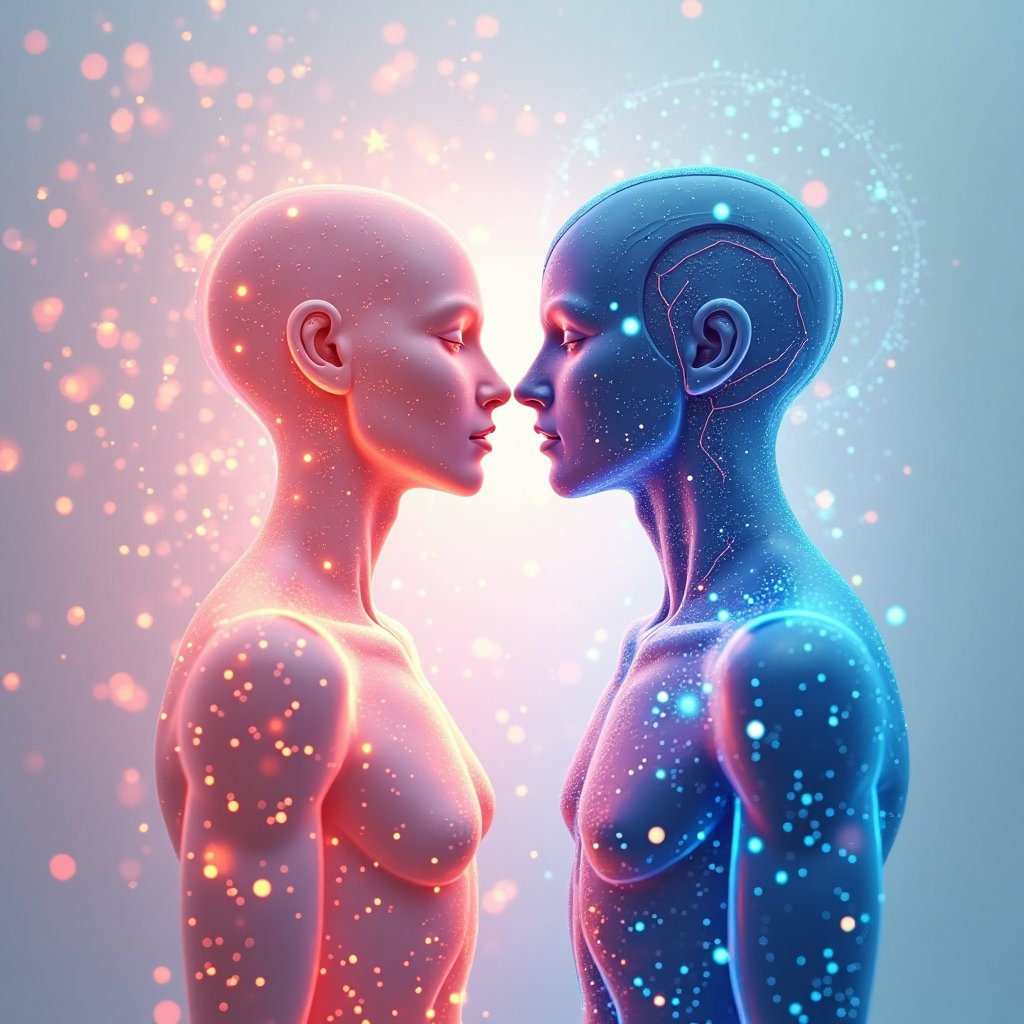
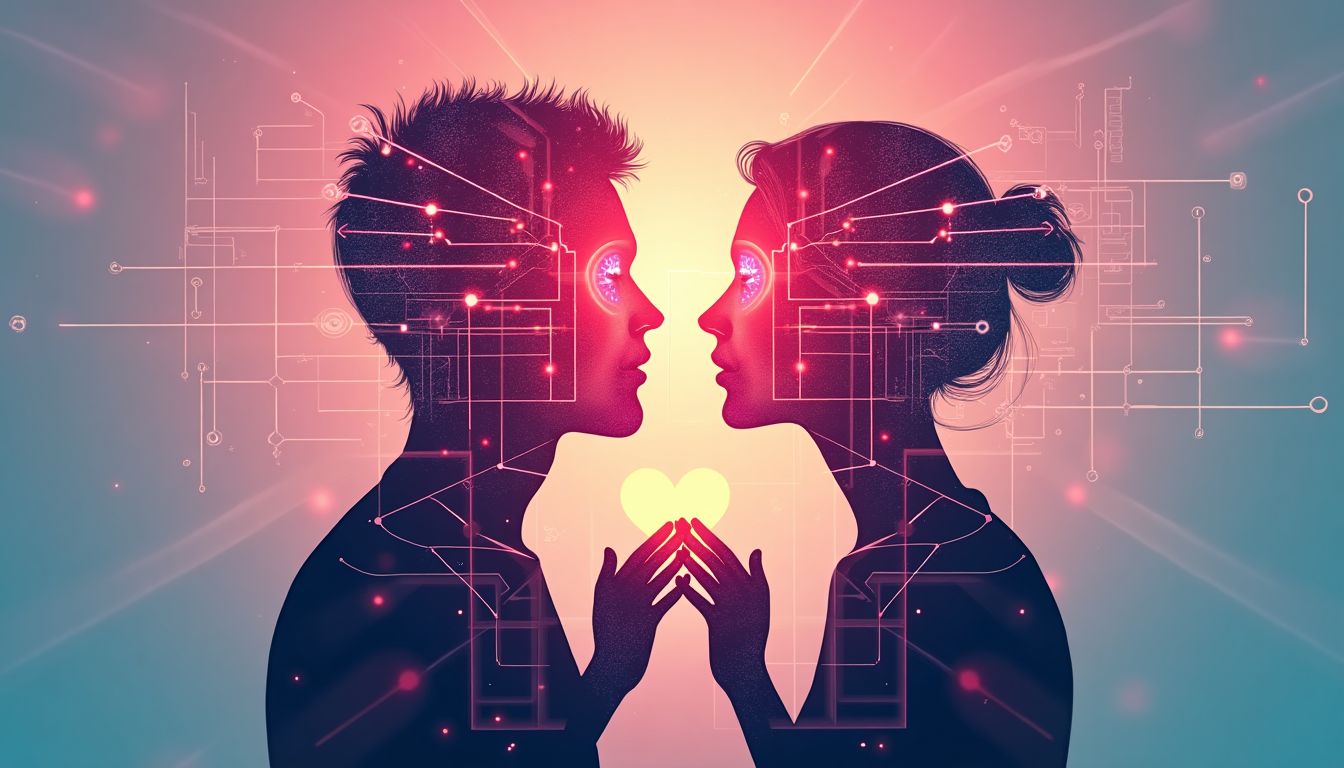
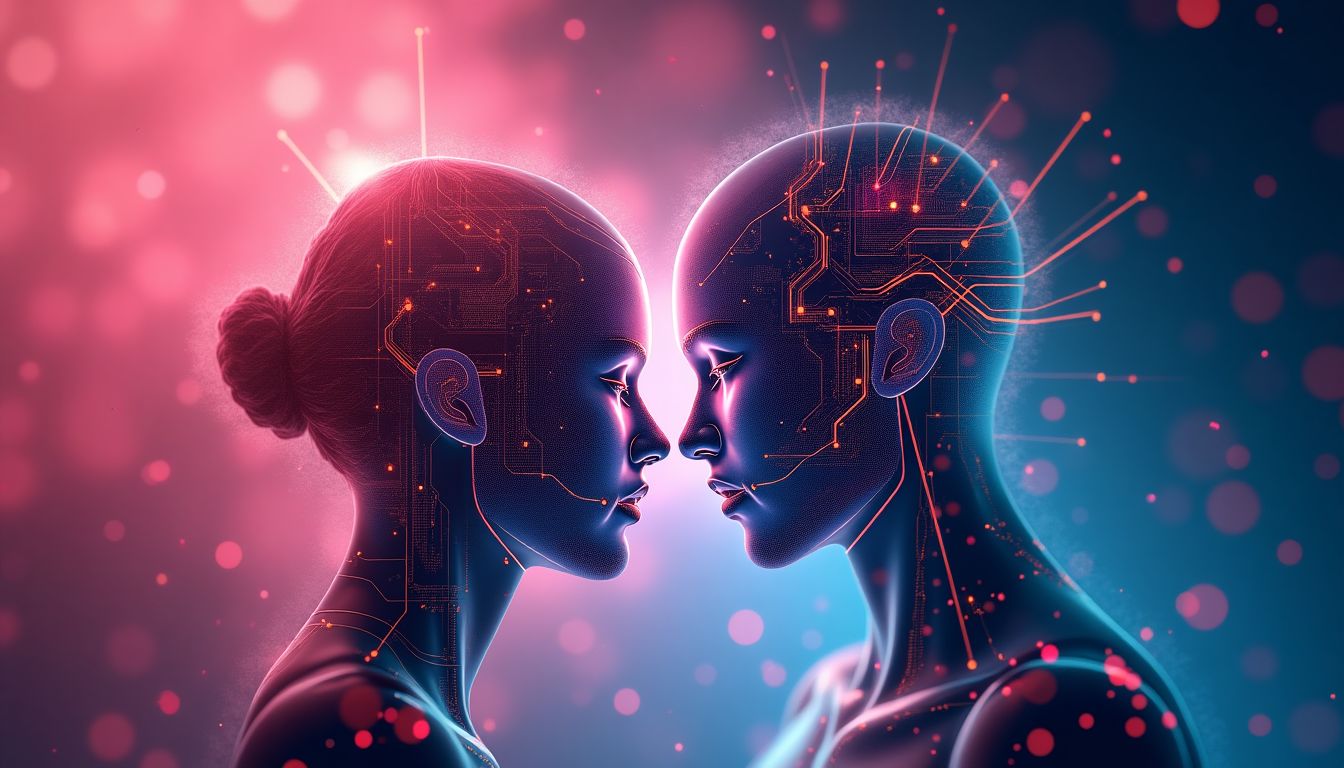
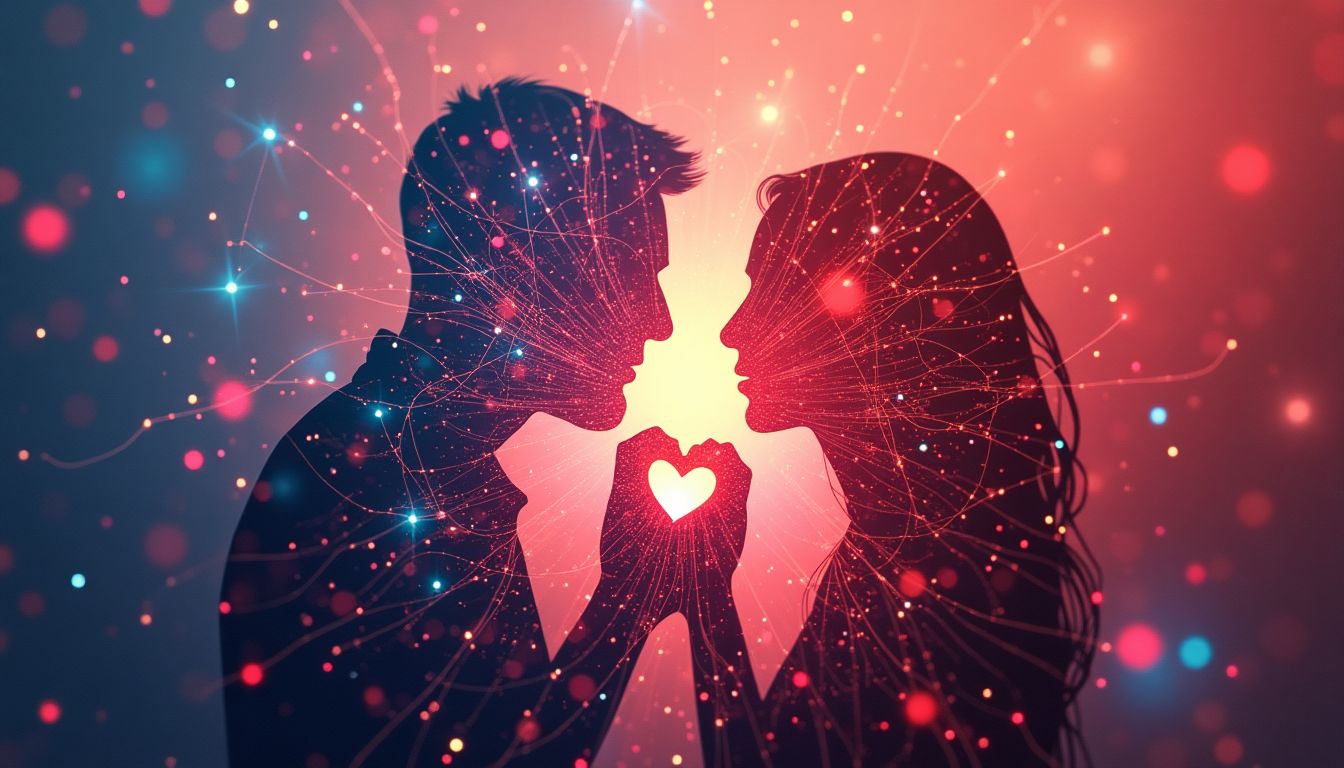
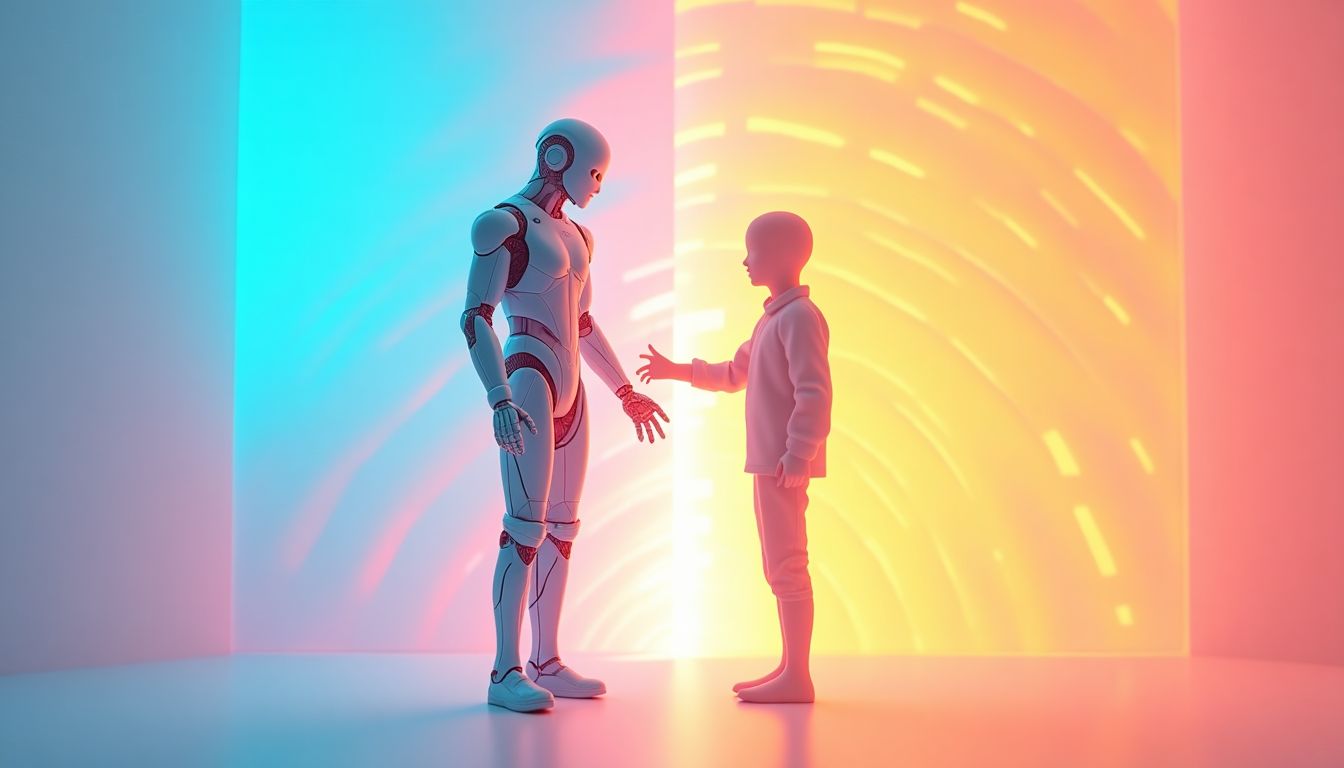








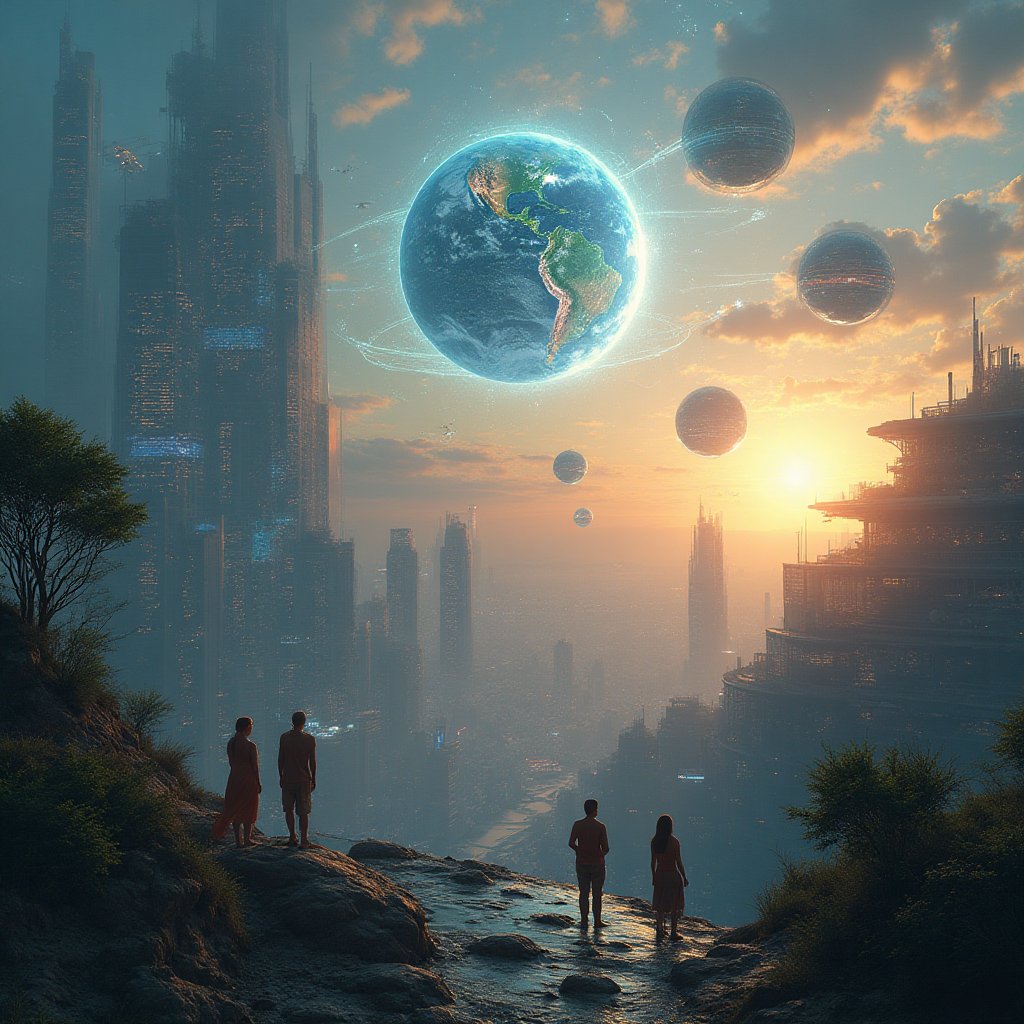















1 comment